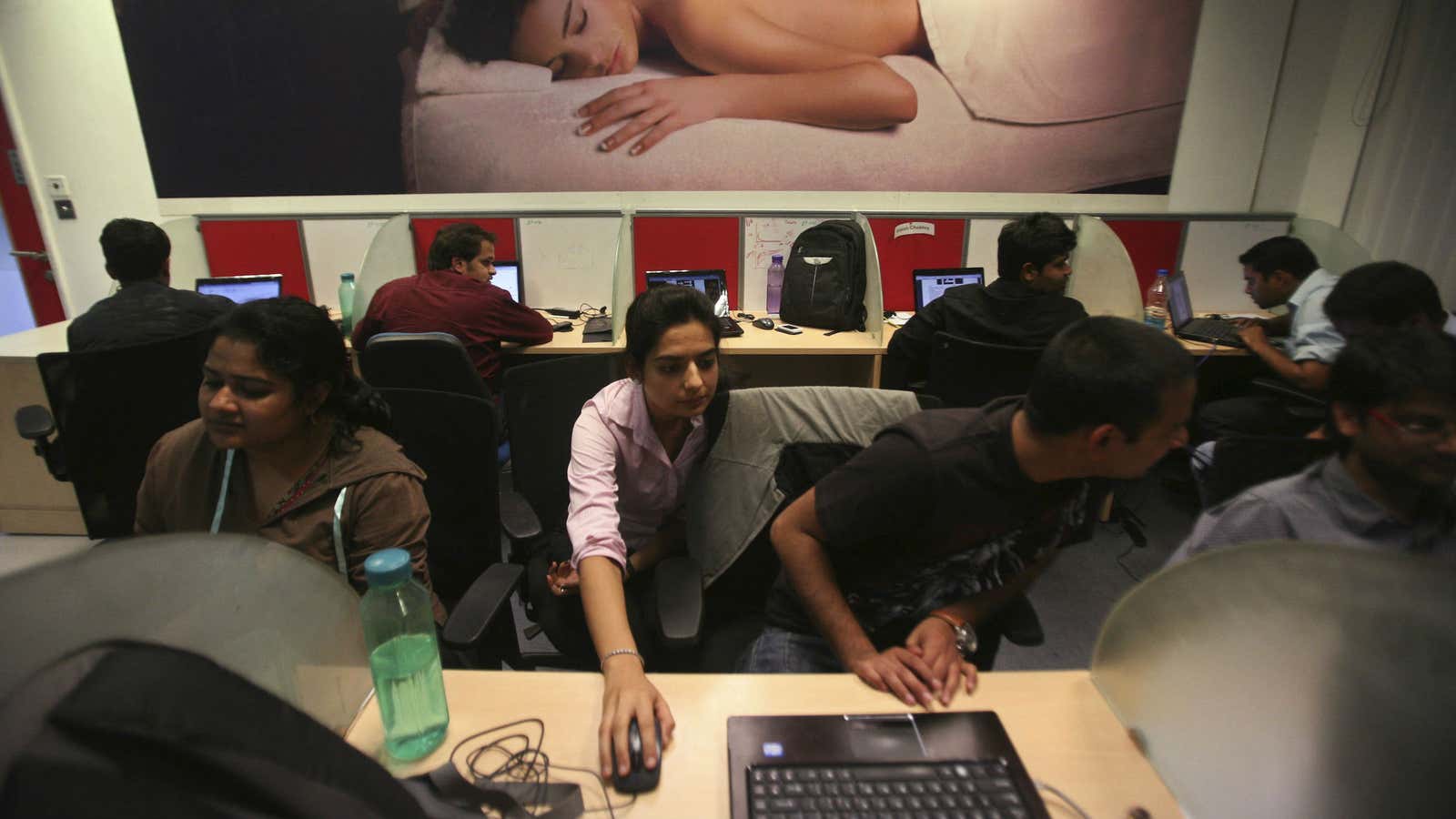Quartz continues its series profiling companies around the world experiencing explosive growth.
A lack of trust is holding back online shopping in India, a market some call the world’s last major frontier for e-commerce. The country is home to a quickly expanding middle class and millions of new internet users. But wariness about online shopping, poor infrastructure, and a low penetration of bank accounts have meant that online retail accounts for only 1% (paywall) of the country’s $450 billion consumer market.
Snapdeal is hoping to change all that. The company was founded in 2010 by former high school classmates Kunal Bahl, who had just left a job with Microsoft, and Rohit Bansal, who was with CapitalOne. The two launched the company as a daily coupons site—Bahl’s idea after relying on coupons to save money while at university—and later overhauled it into an online platform connecting buyers to sellers in 2011. It recently received funding from eBay.”Trust—this is the number one thing we focus on as a company given the nascent nature of e-commerce in India,” Bahl tells Quartz. The company aspires to be the “Alibaba of India” after the Chinese e-commerce giant best known for its marketplace Taobao.
The comparison is apt for a few reasons. Alibaba similarly had to overcome mistrust among Chinese customers accustomed to swindling, counterfeit goods, and unreliable service. In India, shoppers have those same concerns but are also wary of using debit and credit cards online—it’s estimated that more than 50% (pdf) of all online transactions in India are paid with cash on delivery.
Bahl’s firm is trying to build confidence in online retail through features such as screening and rating of all of its sellers, allowing only new items to be sold on its site. It also gives customers a seven-day window to return items that don’t meet their expectations. Like Alibaba’s escrow system, Alipay, which was critical for Alibaba’s success in China, money from the buyers goes to Snapdeal first and only reaches sellers once the buyer is happy with the purchase. Bahl says the company is also working on a payment system that gives customers a kind of e-commerce profile so that they only have to input their payment information once, lowering chances of consumer fraud.
So far, the strategy appears to be working. The company released a statement this week that sales are expected to reach $500 million for 2013. As of October, sales had grown sixfold from the same period a year before. Bahl said that cash-on-delivery payments, which generally raise costs for e-commerce companies, have fallen by a quarter since last year.
But hurdles remain. India’s online retail market can be difficult and possibly underwhelming. E-commerce startups in India have a notoriously low survival rate and now face increasing competition from older outfits like Flipkart, founded in 2007 by two ex-Amazon employees, and Amazon itself, which is now gingerly entering the market. And the market is still small: online shopping in India was worth about $10 billion last year, compared to over $200 billion in China and the US. And most of those sales in India were for services like travel bookings rather than the purchase of merchandise.
Still, the growth of India’s e-commerce market—sales have grown on average 34% over the last seven years—is nothing to sneeze at. In this case, it’s the nice guys, or at least the most trustworthy, that might finish first.
